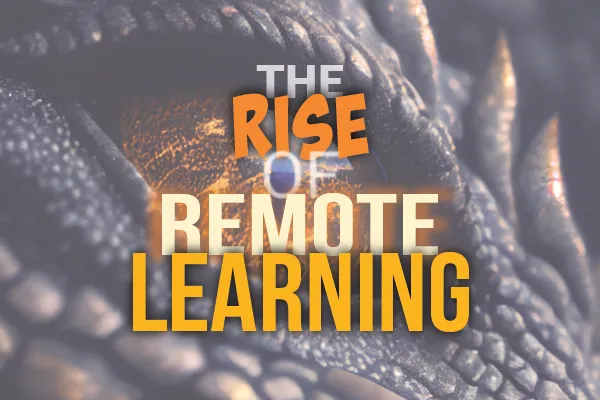
The Rise of Remote Learning: Understanding IDEA, FAPE, and Online Education
Custom HTML/CSS/JAVASCRIPT“Remote learning is here to stay, and as educators, we must adapt and embrace this new frontier of education.” - Seth Godin
Introduction:
The rise of remote learning has brought about significant changes in the educational landscape. This blog post delves into the two main reasons behind the surge in remote learning – the popularity of online public schools and the impact of the COVID-19 pandemic. As an expert in SEO optimization, I'll explore the connection between IDEA (Individuals with Disabilities Education Act) and FAPE (Free Appropriate Public Education) in the context of remote instruction. Furthermore, we will examine the various types of remote learning and how to communicate the needs of children with learning disabilities effectively. Understanding the nuances of online education and advocating for the right support is crucial in ensuring a successful remote learning experience.

The Growth of Online Public Schools
Online public schools have witnessed a remarkable rise in popularity since their inception in the early 1990s. Flexibility, self-paced learning, easily adjustable accommodations, and parental control over the learning environment are among the key reasons why more people opt for online public schools. We'll explore the implications of this trend for students and parents, providing insights into making informed decisions about their child's education.
The Impact of the COVID-19 Pandemic on Remote Learning
The outbreak of the COVID-19 pandemic in 2020 led to an abrupt shift from in-person to remote learning for millions of students. This transition caused confusion and added responsibilities for parents, who had to juggle their child's education alongside work and increased screen time. We'll discuss the challenges faced by parents and students during this period and highlight the importance of maintaining the quality of education under such exceptional circumstances.
Understanding FAPE, IDEA, and Related Services for Online Schools
Each state has its rules and regulations regarding online learning, and we'll explore how IDEA and FAPE come into play in the context of online public schools, charter schools, and private online schools. We'll also shed light on Individualized Service Plans (ISPs) and related services provided by private schools. Additionally, we'll discuss how some states allow access to related services for private school students and the importance of advocating for equal opportunities.
Types of Remote Learning: Synchronous vs. Asynchronous
Remote learning can be categorized into synchronous and asynchronous formats. We'll explore the differences between these two approaches and examine their impact on student engagement and learning outcomes. By understanding the benefits and drawbacks of each method, parents and educators can make informed decisions about the most suitable approach for their child's needs.
Advocating for Your Child's Remote Learning Needs
Ensuring that children with learning disabilities receive the support they need during remote learning is essential. We'll provide practical advice on effectively communicating with the IEP (Individualized Education Program) team and developing a remote learning plan. By focusing on the child's individualized curriculum goals and documenting concerns, parents can create a solid foundation for advocating for their child's education.
Accommodations and Modifications for Remote Learning
Discover a wide range of accommodations and modifications available for online and remote learning. We'll explore accessibility features built into online learning platforms like Zoom and Google Meet. Additionally, we'll delve into various modifications and accommodations that can be tailored to the child's specific needs, optimizing their remote learning experience.
Conclusion
The rise of remote learning has transformed the educational landscape, offering both challenges and opportunities. By understanding the intersection of IDEA, FAPE, and online education, parents and educators can provide the best possible support for children with learning disabilities. By advocating for individualized needs, exploring various types of remote learning, and implementing appropriate accommodations and modifications, we can ensure a successful and inclusive learning experience for all students, regardless of the circumstances.
